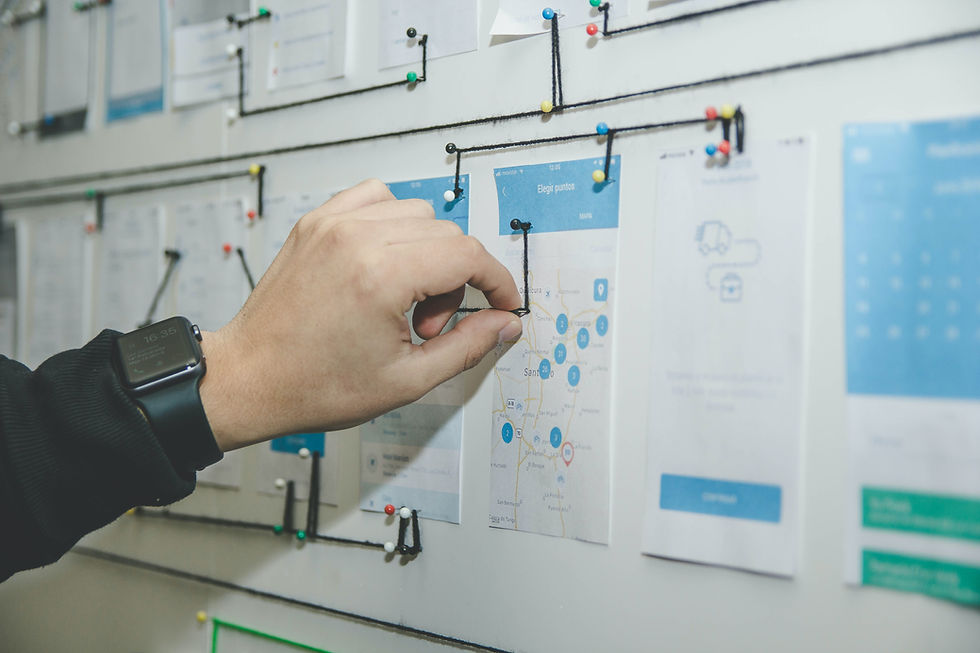The Future of Smart Hospitality: Embracing Digital Transformation for Enhanced Guest Experiences
- Rami Wehbe

- Sep 4, 2024
- 4 min read
Updated: Sep 27, 2024
Author: Rami Wehbe
Date: September 04, 2024
The hospitality industry is at a transformative crossroads, driven by rapid technological advancements and evolving guest expectations. This shift presents opportunities and challenges as businesses strive to deliver seamless, personalized, and efficient hotel, resort, and restaurant experiences. However, rising operational costs, labour shortages, and the growing demand for sustainability add layers of complexity. To thrive in this dynamic environment, hospitality businesses must embrace digital transformation as a strategic imperative, unlocking new avenues for growth, efficiency, and guest satisfaction.
Why Digital Transformation is Essential for the Hospitality Industry
The global hospitality market is expected to grow by 10% annually, driven by the increasing demand for intelligent and personalized guest experiences. In Canada, the hospitality sector significantly contributes to the economy, with hotels and restaurants playing pivotal roles in employment and tourism. Ontario, as a leading region in Canadian hospitality, is at the forefront of adopting digital solutions to enhance competitiveness and meet the evolving needs of consumers.
The global hospitality market’s projected growth is fueled by technological advancements, with over 60% of Canadian hotels planning investments in smart technologies within the next two years.
Ontario’s hospitality sector, rebounding from the pandemic, is increasingly turning to digital strategies to improve guest satisfaction, reduce costs, and boost operational efficiency.
As the industry navigates this digital shift, it becomes clear that a structured approach is necessary to manage the complexities of transformation effectively. Adopting new technologies without a clear plan can lead to fragmented efforts and missed opportunities. A well-defined framework not only guides the adoption process but also ensures that every aspect of the business is aligned with the strategic goals of enhancing guest experiences, optimizing operations, and driving long-term growth. This is where a comprehensive framework like GlobalDWS’s Hospitality Digital Transformation Framework becomes crucial, providing the roadmap needed to manage digital transformation successfully.
GlobalDWS Vision: A Framework for Smart Hospitality Transformation
At GlobalDWS, we believe the future of hospitality is smart, connected, and data-driven. Our GlobalDWS Hospitality Digital Transformation Framework provides a strategic approach to technology adoption, focusing on six key phases that guide hotels, resorts, and restaurants through their digital journey:
1. Digital Assessment: Evaluate, Identify, Strategize
The first step involves a comprehensive assessment to understand current operations, identify gaps, and strategize the digital transformation. This phase ensures that the hotel's or restaurant's digital strategy aligns with its unique needs and goals, setting a solid foundation for success.
2. Proof of Concept (POC): Test, Validate, Demonstrate
Before scaling, it’s essential to validate new technologies through a POC. This phase allows businesses to test innovations like contactless check-ins or AI-driven kitchen management systems, ensuring they deliver the desired outcomes in real-world settings.
3. IoT Enablement: Connect, Monitor, Control
Implementing IoT solutions can revolutionize operations by enabling real-time monitoring and control. For example, IoT devices can manage energy usage in hotel rooms, monitor equipment in kitchens, or track occupancy levels to optimize resource allocation.
4. Robot Enablement: Automate, Enhance, Integrate
Robotics can automate routine tasks, enhancing both guest experiences and operational efficiency. From service robots delivering room service to automated order-taking in restaurants, robotics provide a consistent and engaging experience for guests while freeing staff for more personalized interactions.
5. AI & Data Analytics Enablement: Learn, Predict, Optimize
AI and data analytics empower hospitality businesses to gain insights into guest preferences, predict trends, and optimize operations. This phase equips hotels and restaurants with the ability to make data-driven decisions, personalize marketing, and improve overall service delivery.
6. Change Management: Guide, Support, Succeed
Technology adoption is not just about systems; it's about people. Successful transformation requires effective change management, including staff training, clear communication, and ongoing support. This phase ensures that all stakeholders are engaged and equipped to embrace new technologies, making the transition smooth and sustainable.
GlobalDWS SmartHotel 360: A Smart Building Approach to Hospitality
SmartHotel 360 is a pioneering concept demonstrating how integrating IoT, Robotics, AI, Robotic Process Automation (RPA), and data analytics can address key business challenges in the hospitality sector. By adopting a smart building approach, SmartHotel 360 enhances operations, boosts guest satisfaction, and improves resource management.
Enhanced Guest Experiences: With SmartHotel 360, guests can personalize their stay through a mobile app, adjusting room settings, ordering services, and making reservations with ease. This personalized control creates a seamless and welcoming environment, elevating guest satisfaction.
Operational Efficiency:In hotel restaurants, SmartHotel 360 uses IoT sensors to monitor kitchen equipment and AI-driven analytics to predict peak dining times, optimizing staffing and menu offerings. This proactive approach ensures smoother operations and a better dining experience.
Proactive Maintenance and Sustainability:IoT sensors continuously monitor critical systems like HVAC and kitchen appliances, enabling predictive maintenance that reduces downtime and extends equipment life. This proactive strategy supports sustainability goals and prevents service disruptions.
Robotic Process Automation (RPA):RPA automates repetitive tasks, from reservations and billing to inventory management and customer inquiries. By offloading these tasks, staff can focus more on guest interactions, enhancing overall service quality and operational efficiency.
By embracing SmartHotel 360 concept, hotels and restaurants can transform into smart environments that not only meet but exceed guest expectations, leveraging technology to drive efficiency, sustainability, and superior service.
Conclusion
The future of hospitality is smart, connected, and personalized. By adopting the GlobalDWS Hospitality Digital Transformation Framework, hotels and restaurants can transform their operations, exceed guest expectations, and position themselves as leaders in the industry. Embrace the future with GlobalDWS and turn your vision into reality.
References
Global hospitality market growth data: Statista
Canadian hospitality industry statistics: Hospitality Canada
Ontario’s digital transformation in hospitality: Ontario Tourism and Hospitality






Comments